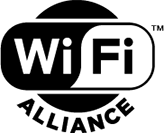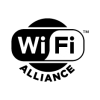Our connected world has conditioned us to an “always-on” lifestyle, with smartphones, tablets and laptops that buzz and ring requiring our immediate attention. We know that the connected traveler of today has come to expect Wi-Fi® connectivity on the go, and recent research illustrates that point more clearly than ever. Market data from across the hospitality, leisure, and transportation industries makes it clear: if these sectors don’t provide Wi-Fi to meet the demands of busy travelers this coming season, they may find themselves losing out to competitors that do. Moreover, Wi-Fi’s continued innovation means that there are new opportunities to differentiate a service offering in a crowded field of Wi-Fi offerings in the travel and hospitality sectors.
Wi-Fi in the air
A prime example of how important Wi-Fi is for travelers is fliers’ belief that connectivity should always be a part of their experience. A 2014 Honeywell International annual survey revealed that the availability of in-flight Wi-Fi influenced the flight selection for two-thirds (66 percent) of passengers. Moreover, nearly one in four (22 percent) paid more for a flight that offered better Wi-Fi capabilities and a fifth switched from their preferred airline for the sake of Wi-Fi.
Business travelers expect Wi-Fi
Wi-Fi is crucial for travelers when work needs to be done, and has become a lifeline for frequent travelers that require on-the-go connectivity in order to do their job. Wi-Fi is no longer an amenity but an expectation. In fact, 87 percent of respondents in an iPass survey noted they are frustrated when Wi-Fi is not available. According to the same survey, 74 percent of business travelers would chose Wi-Fi over other options like cellular data. To attract and retain these valuable frequent business travelers, Wi-Fi connectivity is a must.
Wi-Fi required: From hotels to campgrounds
Travel usually requires an overnight hotel stay, and hotels have come to understand their guests – whether traveling for business or pleasure – need to be connected. How valuable is Wi-Fi to travelers staying in hotels? According to a joint Skift and American Express survey, Wi-Fi was the number one factor influencing hotel choice for business travelers – above proximity to destination, free food and enrollment in loyalty programs. A recent Hyatt Place survey also found that the same held true for the general consumer: their most coveted amenity was free Wi-Fi. This New York Times article highlights services that have emerged to showcase the speeds of hotel Wi-Fi connections and offer transparency into what type of connectivity travelers will actually get. Emergence of services like Hotelwifitest.com and HotelChatter.com further indicate that hotel competition is heating up and availability of good Wi-Fi has become a strong differentiator for travelers.
The need for Wi-Fi access expands outside of closed hotel walls. Even for campers, Wi-Fi ranks higher than safety lighting, cabins, and campground stores according to a recent study by Kampgrounds of America. Satisfying that need for connectivity is so important that even the National Park Hospitality Association (NPHA) has had to adapt. The head of NPHA testified before a U.S. Senate committee regarding a move to add more Wi-Fi connectivity and improve cell reception, citing a decline in overnight campers and the need for campgrounds to better adapt to the “21st century camper.”
Keeping pace with today’s connected traveler’s expectations
With connectivity demand at an all-time high, technology executives in the hospitality industry should take note of some important developments in Wi-Fi’s evolution that will deliver higher performance, address congestion and deliver a differentiating user experience in their Wi-Fi deployments. Customers will notice – and prefer – the differentiated experience provided by these innovations.
First and foremost: Wi-Fi CERTIFIED Passpoint™. Designed originally for operator hotspots, Passpoint makes it easy for your customers to establish an account and sign in automatically – even across many properties. Passpoint-enabled networks take away the need for complex web portal sign in forms, support automated billing, and importantly, always deliver industry-standard WPA2™ security protections.
Second, every traveler has a story of paying for Wi-Fi, only to discover that network capacity and performance fell far short of expectations. As legacy equipment gets refreshed and hospitality properties deploy or expand Wi-Fi networks, the word of the day is this: deploy only dual-band Wi-Fi CERTIFIED™ n and Wi-Fi CERTIFIED ac. Deploying this advanced generation of Wi-Fi maximizes capacity and increases network performance significantly. Particularly as usage continues to increase, IT managers in the hospitality sector can be confident that an investment in the latest-and-greatest generation will pay off in the long run.
Travelers’ insatiable demand for Wi-Fi will undoubtedly persist. The number of devices connecting will continue to grow, and travelers will expect connectivity in more and more places. Wi-Fi has a strong 15-year legacy, and will continue to evolve alongside the increasing demand for connectivity on the go.
The statements and opinions by each Wi-Fi Alliance member and those providing comments are theirs alone, and do not reflect the opinions or views of Wi-Fi Alliance or any other member. Wi-Fi Alliance is not responsible for the accuracy of any of the information provided by any member in posting to or commenting on this blog. Concerns should be directed to info@wi-fi.org.




I agree - Wi-Fi is crucial
Add new comment